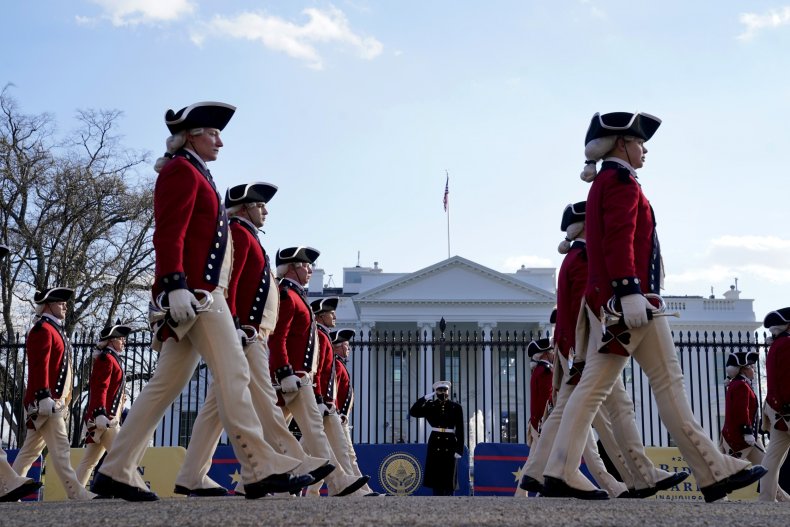[ad_1]
Is unity possible in an “uncivil war”? President Joe Biden seemed to think so, preaching a somber yet hopeful vision of America’s future at his inauguration. But after four years of Donald Trump, the obstacles that the new administration face are overwhelming, with our American identity crisis posing an existential threat. Can Biden–and the American people–resuscitate America’s civil religion, which is so fundamental to our national unity and so warped by former President Trump? Should we?
Civil religion is the set of sacred values, rituals and symbols that tell a nation’s story and give a shared identity to its people. Defined by sociologist Robert Bellah in the 1960s, American civil religion can be found in our national holidays and political ceremonies, our historical myths and the statues we erect to commemorate them. The flag, the Constitution, the American Dream–this iconography is woven into American consciousness. The president speaks as civil religion’s prophet, and history shows that its tenets are more malleable than we like to imagine. Presidents have employed civil religious rhetoric to support liberation and equality, as well as to justify imperialism, slavery and genocide.
Trump’s civil religion was unique, as it took the form of a self-deifying religious nationalism. He exploited the origins of our civil religion to foment an ideology that holds conservatism, whiteness and Christianity as a holy trinity of the “real” American identity, with himself as the object of worship. He neglected the unifying elements of his pulpit in favor of kissing the flag, holding campaign events at the White House and trying to add his face to Mount Rushmore. Over the years, his supporters came to resemble fervent worshippers at the Church of Trump, and the GOP became convinced that its partisans alone own the symbols and history of America.
That Republican leaders felt this sense of ownership is evident from their outrage at those who kneel for the national anthem, or at those who dare to discuss the realities of slavery and its contemporary impact. Trump’s 1776 Commission report, released in the final days of his presidency, dismisses critical history and progressivism as heresy. Beyond race, religion, or national origin, his civil religion fully conflated American with Trump-Republican, branding those on the left as iconoclastic heathens. Through this dogma, his administration justified incalculable loss, from fire, storms and plague alike, and incited acceptable partisan violence which culminated in the Capitol insurrection.

Drew Angerer/Getty Images
President Biden doesn’t necessarily need to abandon civil religion to pursue unity. No matter how much Trump professes his love for the American flag, he does not own it. Yet, to survive in any meaningful way, we must expand our civil religion.
For the “soul” of America to better reflect the diversity of its people, the civil religion that our leaders preach must be more concerned with achieving justice today than on some mythologized past or inevitable destiny. This can be achieved through drawing on new icons and values, uncovering the hidden heroes of our history and embracing humility. An uncritical acceptance of American Exceptionalism is the fatal hubris of civil religion, and our national community would be better off if we instead espoused the recognition of our flaws as a core tenant.
Trump is out of office, but the millions of adherents to his religious nationalism are here to stay. In reshaping our civil religion, the Biden administration can provide a powerful counterweight to anti-democracy zealotry. Our new president has the chance to pull these Americans back from the brink, reminding them of the larger ties that bind us and help them grapple with our history.
Biden’s use of the term “white supremacy” in his inaugural address, the first ever, is a positive sign that his administration is willing to take on this challenge. But only through sustained action, from combatting far right violence to educating the public on the realities of systemic racism, can we possibly develop a civil religion that actively serves the people, regardless of race, faith, or party; a civil religion that can’t be so easily twisted into a weapon of oppression and division.
Alex Cohen is a senior research and program associate in the Fellows Program at the Brennan Center for Justice at New York University School of Law.
The views expressed in this article are the writer’s own.
[ad_2]
Source link